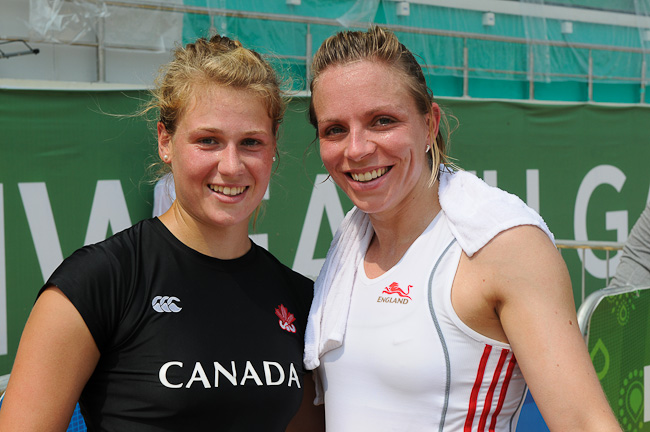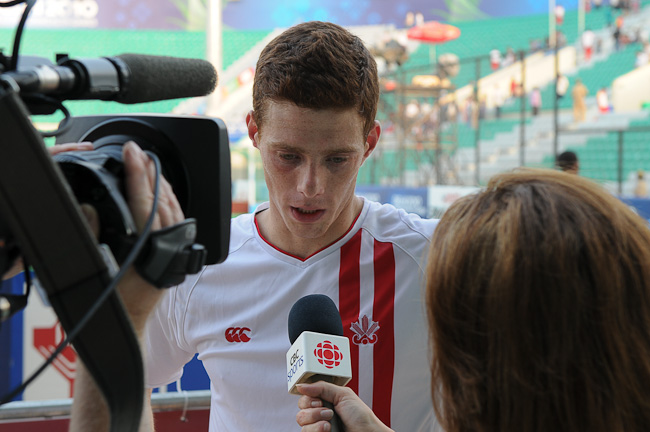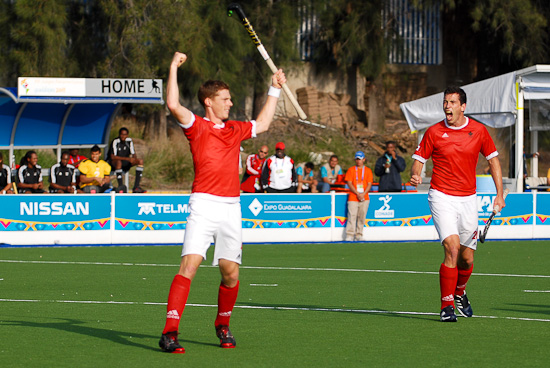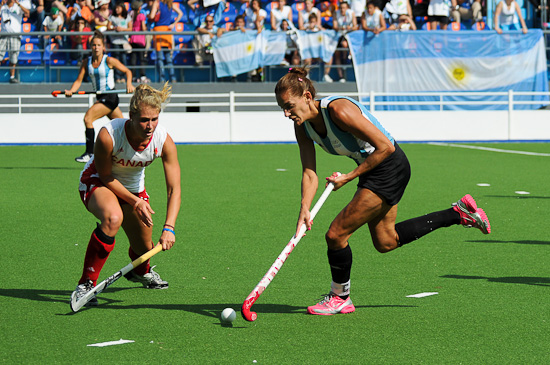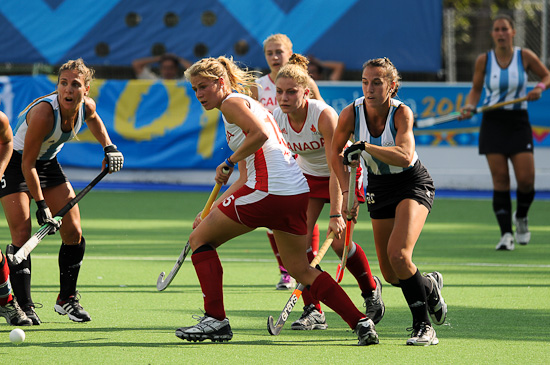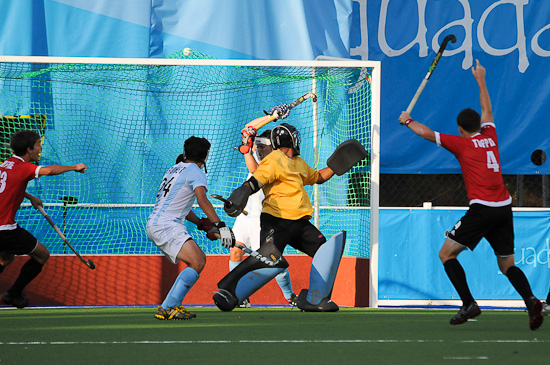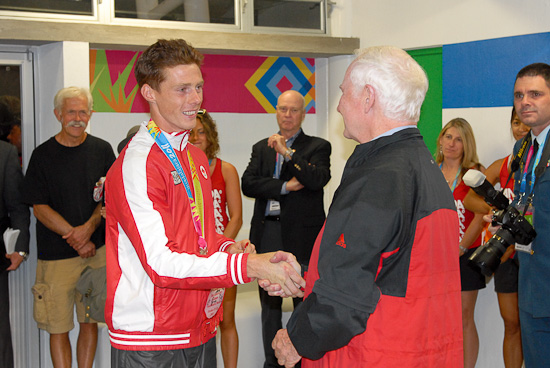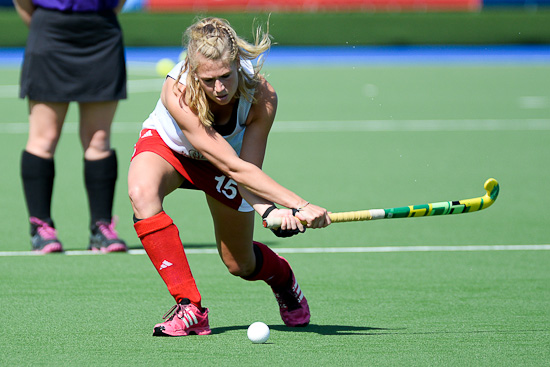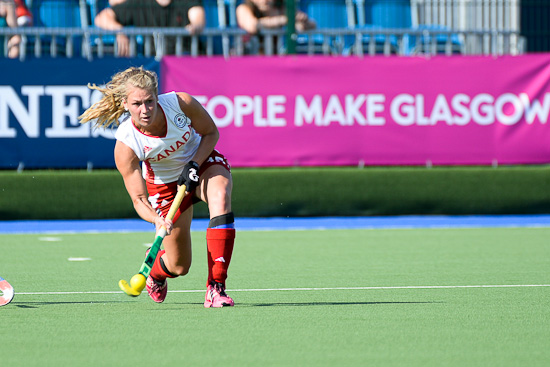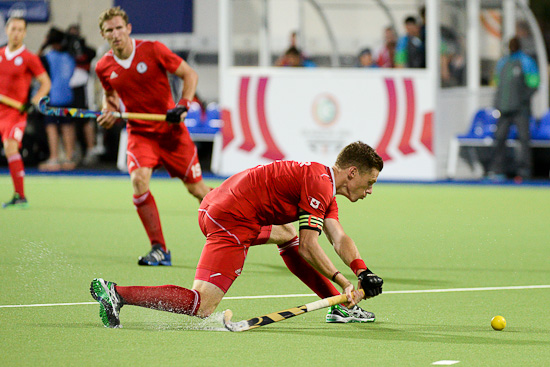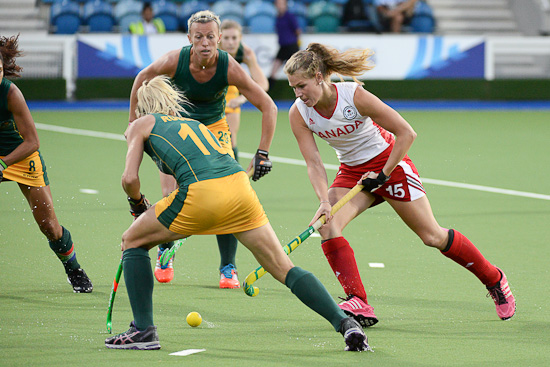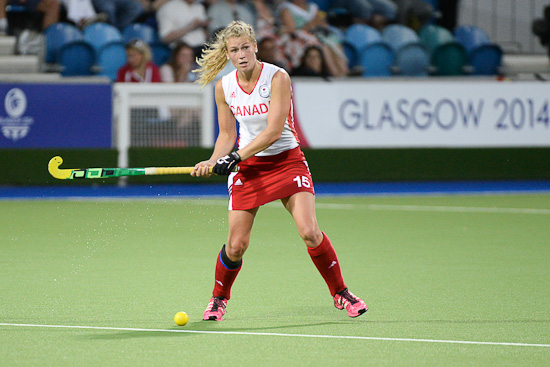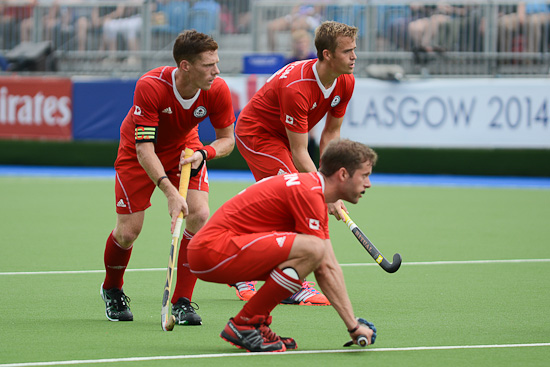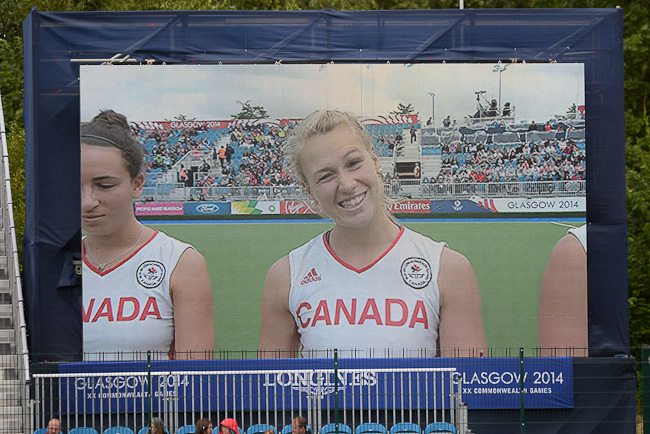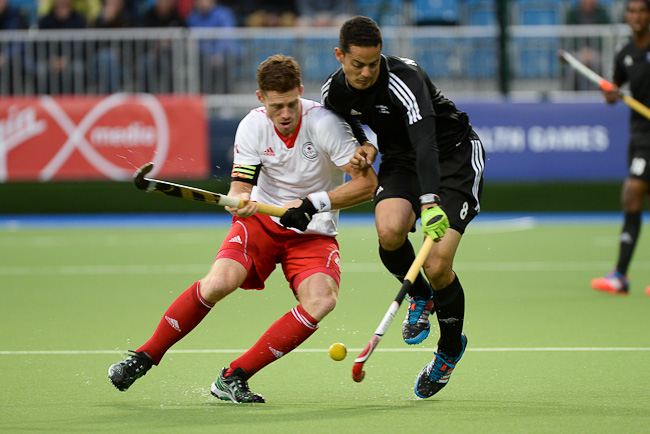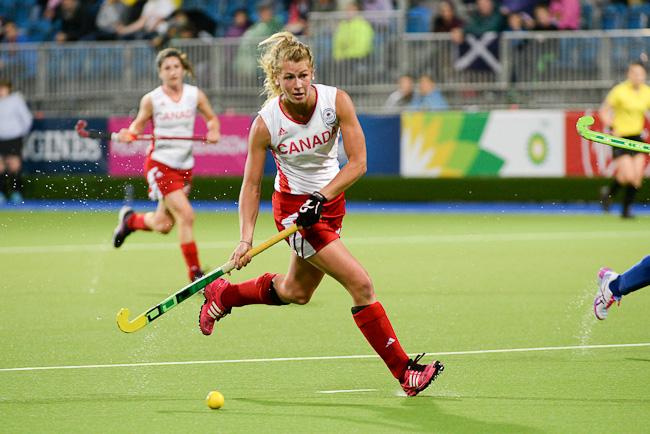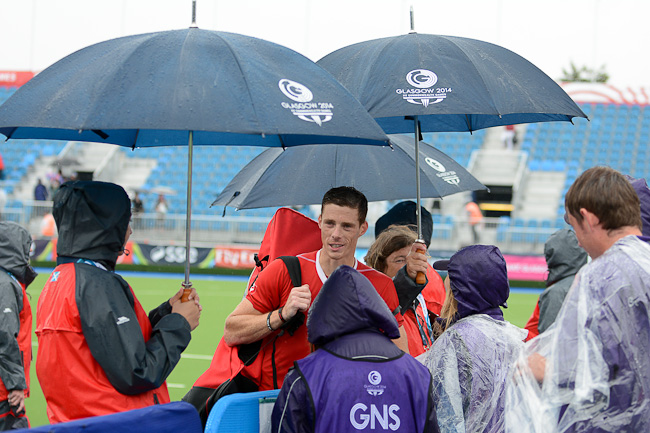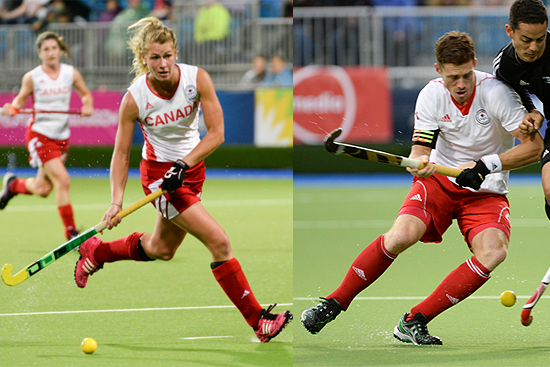
Abigail Raye is a well-travelled hockey player. She was born in England but when she was 13 years old her parents moved to Canada and Abi gained Canadian citizenship. She first represented her country in 2009 against Ireland, and has played in two Commonwealth Games since that debut.
The tall defender is now an integral part of the national team and has been instrumental in helping her team get to the Hockey World League Semi-Finals in Valencia in June. She is one of a number of Canadians and other players from the continent who have taken the decision to leave family and friends behind for a few months each year to play club hockey, on a professional basis, for one of the powerhouse clubs in Europe, in Abi’s case Royal Wellington in Belgium.
Scott Tupper has more than 200 caps for Canada and was part of the Pan-American winning teams of 2007 and 2009. His European experience includes winning a German Championship gold medal with Der Club an der Alster. He now plays for Royal Racing Club Brussels, one of the top Belgium sides.
He explains what drove him across the Atlantic. “I first came to Europe to play in 2009. At the time I felt that it was the best thing for me to further myself as a player, by challenging myself against some of the best players in the world on a more regular basis. Training and playing with and against World Cup and Olympic medalists every week was a great way to grow as a player and bring back that learning to the Canadian team.
“It has given me a lot more experience playing in pressure situations. At home in Canada we don't have a prominent club league, so it's tough to get quality match experience outside of the national team. Being able to play important matches every weekend with the pressure to perform has been hugely beneficial. I also think that as a foreigner, you're under a little bit more pressure to perform, in that you have to justify your position every week.”
Raye’s motives for moving are similar. She says: “I made the decision to play hockey in Europe because I felt that it was the next step in my hockey career. I joined the Canadian Team at age 17 in 2008, so have been training here in Canada for seven years now. I wanted to be exposed to more hockey, and I knew that the European club system offered competitive, high quality hockey. Ian Rutledge, my coach, also gave his blessing, for which I’m grateful.”
So what does the European club scene offer to a player such as Abi and Scott? “It is really the ability to play high level games every weekend, which has really added to my confidence and composure on the ball,” Abi says. “Playing in Europe has helped me improve my game sense, from everything to positioning and ball control. Game play is the best form of practice.”
This is a point that Tupper agrees with: “By being exposed to different ideas and views on the game I can offer options on what we're doing as a national team and what ways we might be able to improve.”
This experience really paid off in the recent Hockey World League Round Two event, where Canada qualified for the HWL Semi Finals after finishing second to Russia. It was in many ways due to the experience of Tupper and fellow Europhile Mark Pearson that Canada battled through to second place and one step closer to Olympic qualification. “I think it’s knowing that it’s not won or lost in the first 10 minutes,” explains Tupper. “As we play big games, we have to recognize bad things are going to happen. We’re going to get scored on and we’re going to have peaks and troughs. It’s just about learning how to manage the valleys and manage your emotions through the peaks as well.”
Returning to Raye, the 23-year-old would like to see more of her teammates take the plunge and play hockey in Europe. “I think that my positive feedback about my experience may encourage some of my teammates to seek out a similar opportunity. They certainly know I’m a big fan of playing in Europe, and of playing in Belgium in particular. When I look back at the last season there was this moment when the team hit a real winning streak. It wasn’t just the winning though, it was the fact that we started playing with an incredible rhythm and we felt truly unstoppable. It’s hard to describe in words, but I’m sure that most players of team sports will recognize the feeling.”
Both Raye and Tupper admit to some teething problems: “For me the main challenge revolved around language issues,” says Raye. “During pre-season all the coaching and discussion was in French and that was far beyond my high school French. I’m not even sure my “bonjour” really cut it. Needless to say there is a universal language to hockey so, with the help of my new multi-lingual teammates I managed to just about keep up. On the flipside, my lack of language skill helped me get to know a lot of my teammates as I kept asking them to translate for me.”
For anyone considering exploring another culture, Tupper has this to say: “You grow as a person when you take yourself out of your comfort zone and move overseas to play, and you gain a really valuable life experience. Being exposed to new languages and different cultures is a huge benefit to playing abroad. Furthermore, it's a great way to make friends around the world. I've been lucky to make great friends playing abroad, and have some incredible experiences. And of course, the social side of hockey that's so prevalent in countries like Belgium, Holland or Germany is something that we don't have at home.... A big post-game party at a hockey club is surely a benefit?”
For Raye, the cultural and social benefits are matched by the culinary delights. “I got to explore Brussels and learn a little about Belgian culture….. if I’m absolutely honest a lot of this revolved around waffles, chocolate and beer – although not all at once.”
Talking about the challenges faced by Canadian team moving towards both the Pan-American Games and the earlier Hockey World League Semi Finals in Valencia, Raye says: “We are in a good place heading into the next few months. We took a lot of confidence out of our performance at World League Round Two in Dublin. After two years with our coach Ian Rutledge, we’ve nailed down our playing style and structure, so our preparation for Valencia is just about making some small adjustments. The squad has been training hard here in Vancouver and I think we’ll have the ability to surprise some teams in Valencia. As for the Pan Am Games in July, playing top quality opponents at the World League Semi Finals will be great preparation for us. We’ve had a busy year of hockey and we’re taking extra steps to accelerate our growth and improve ourselves every game.”
Tupper was unable to play in Canada’s recent foray into Asia for the Azlan Shah Cup because of club duties, but he says getting match experience against top ranked nations will have been a real bonus for the squad. The team will really get down to serious training in May, when they will “nail down tactics, set plays and strategy.”
“Unfortunately, since we're isolated geographically from most nations, we don't have any more matches leading up, but we'll make the most of our time in Vancouver - training four-five times per week plus physiology work, and then having a training camp in Toronto immediately before leaving for Argentina.”
Like Raye, Tupper expects Canada to surprise some teams in both Buenos Aires and Toronto. “It took a couple years after some major retirements for younger players to get comfortable playing international hockey, but there is more experience in the squad now. That, coupled with a different coaching philosophy that the players have really bought in to, has seen us improve over where we were maybe three years ago.”
